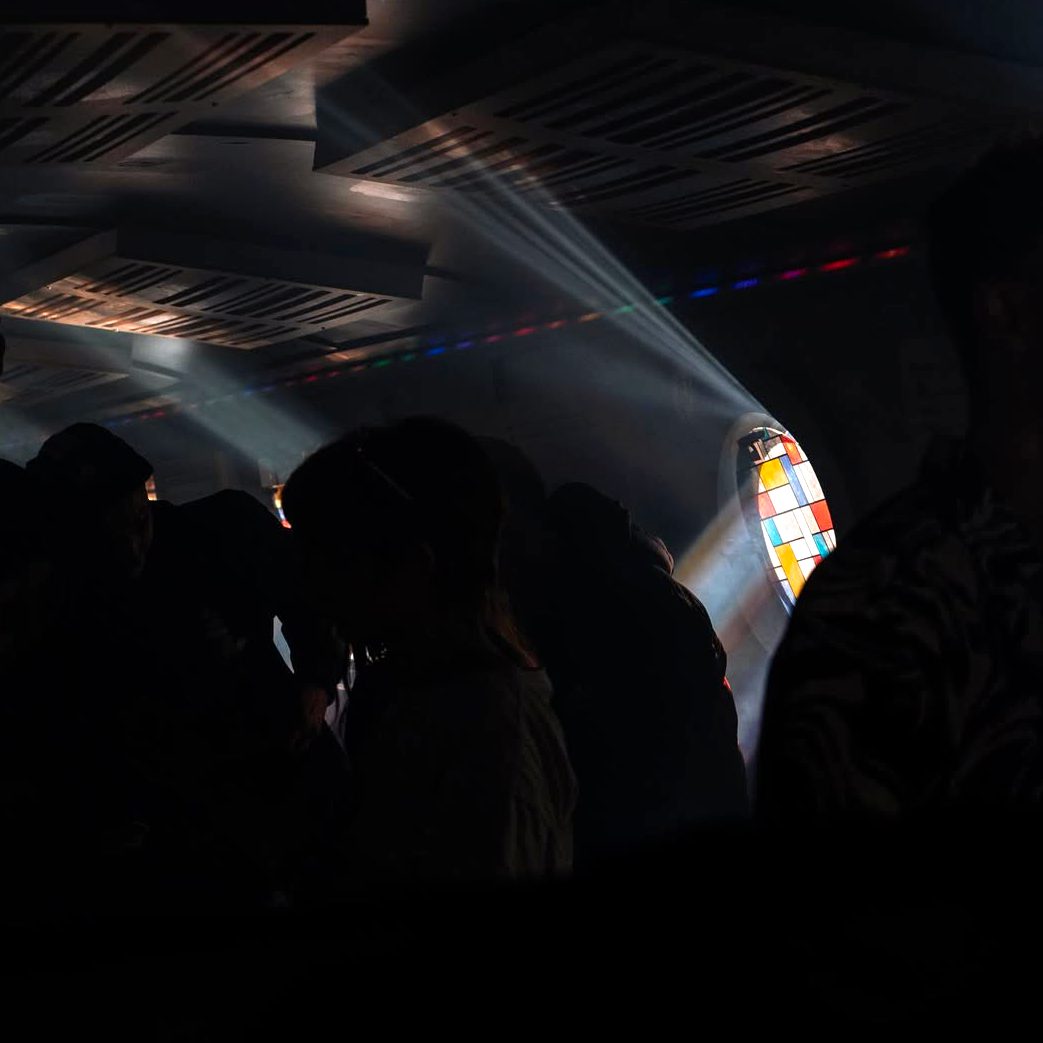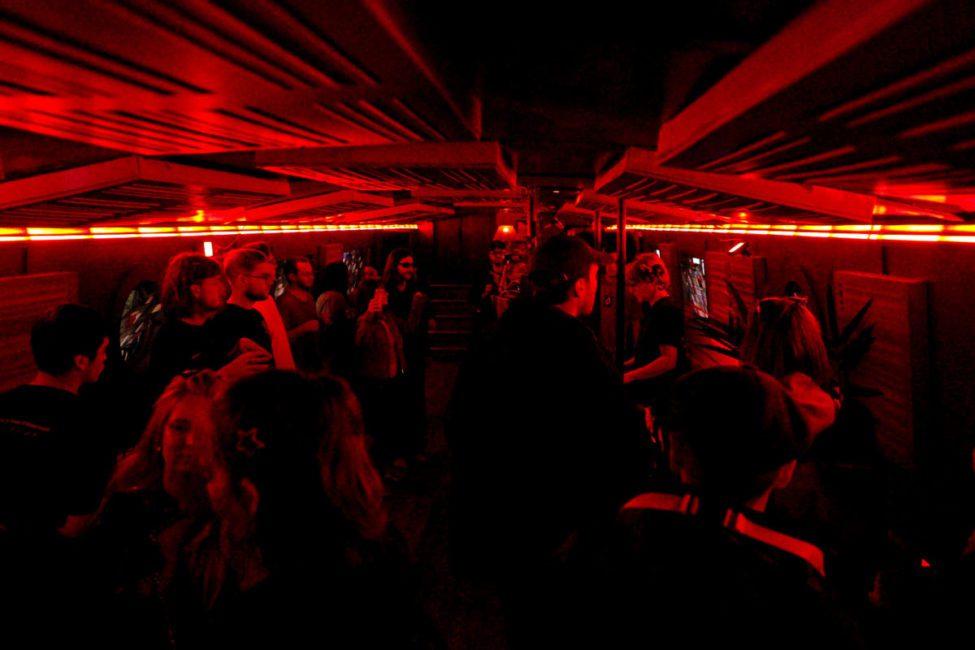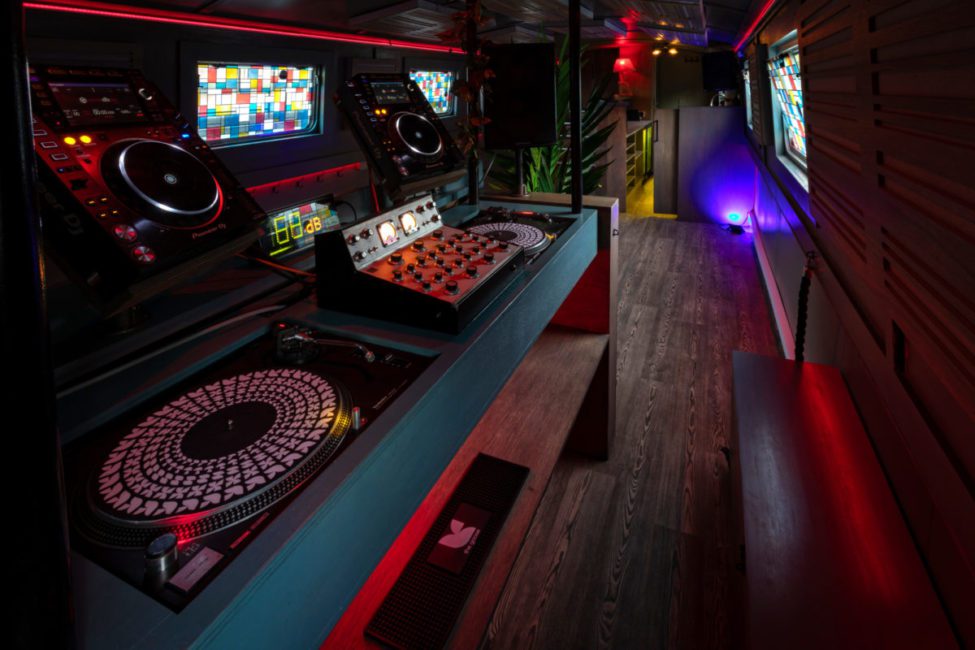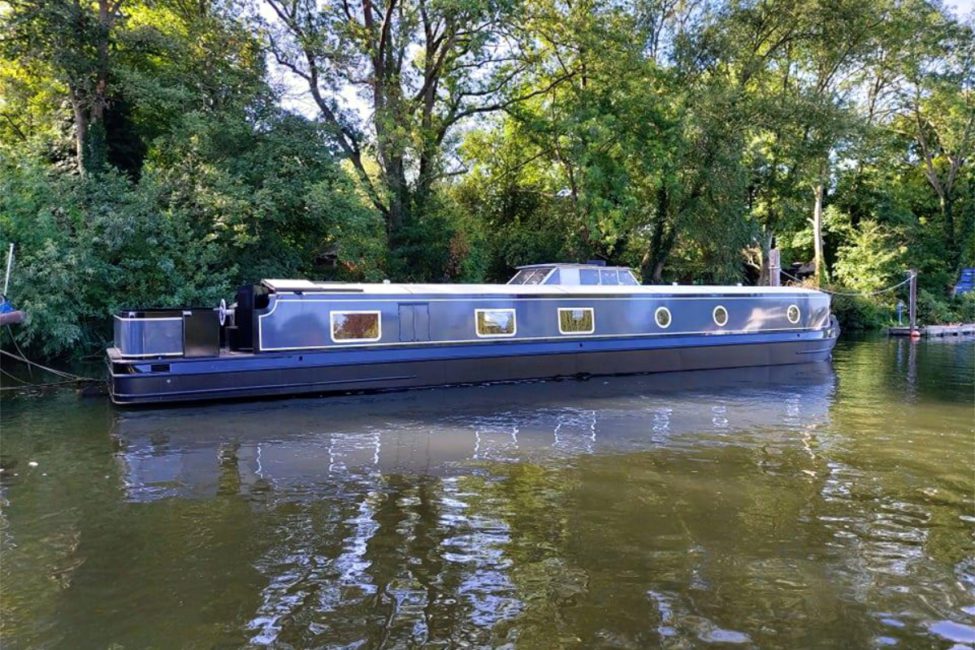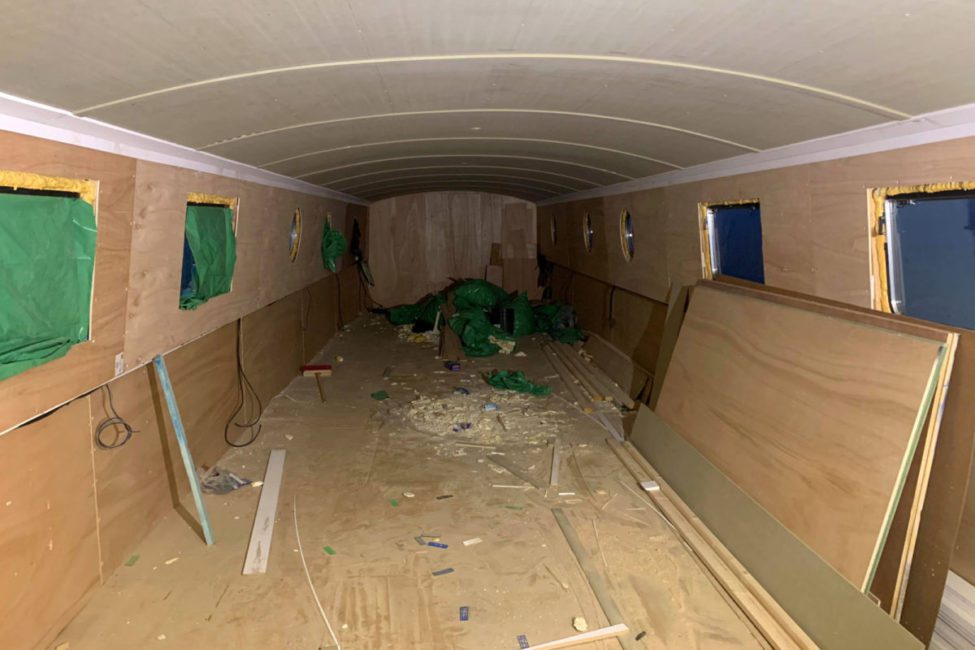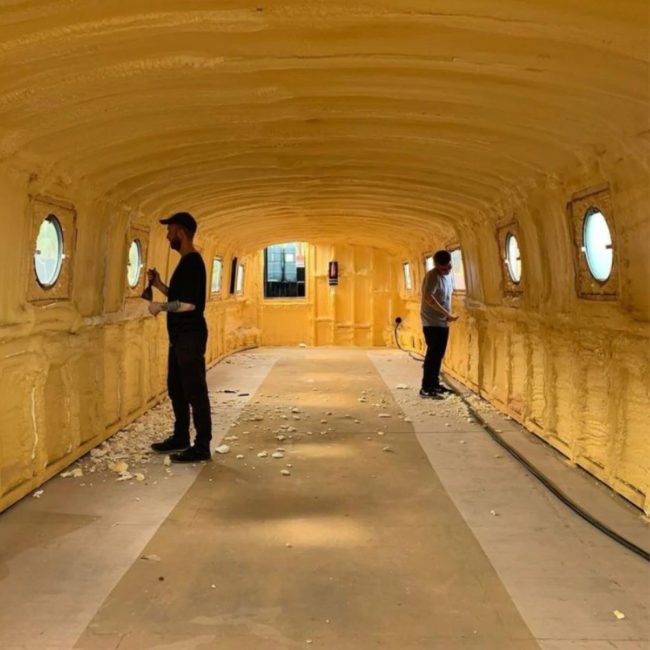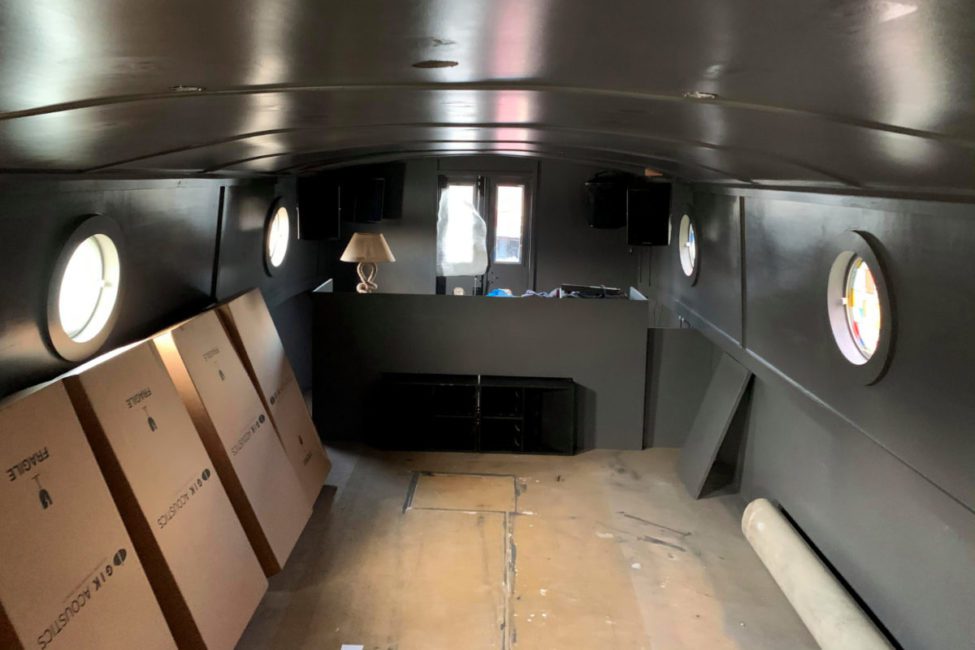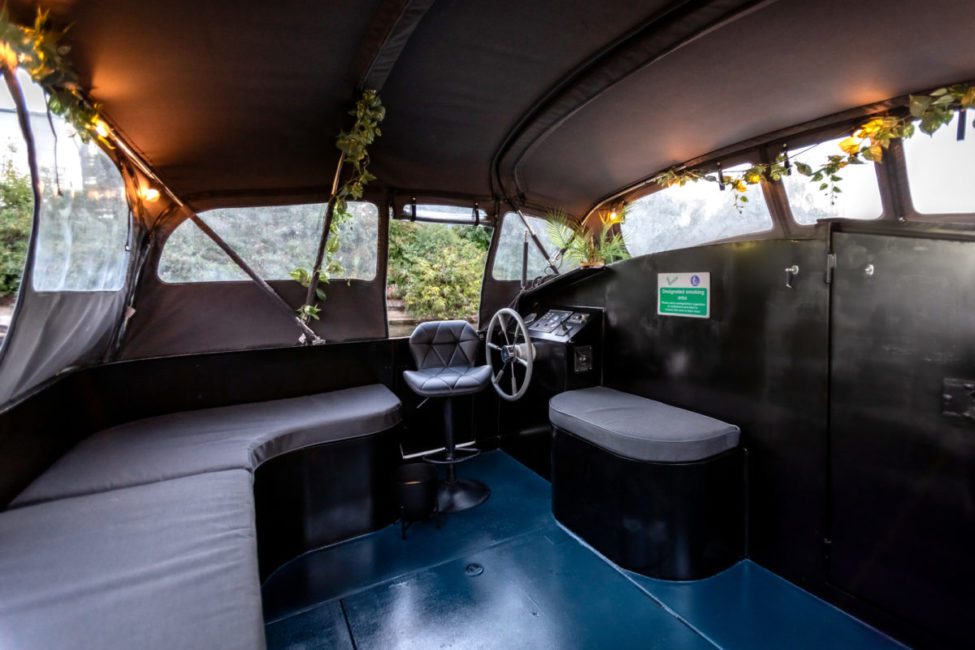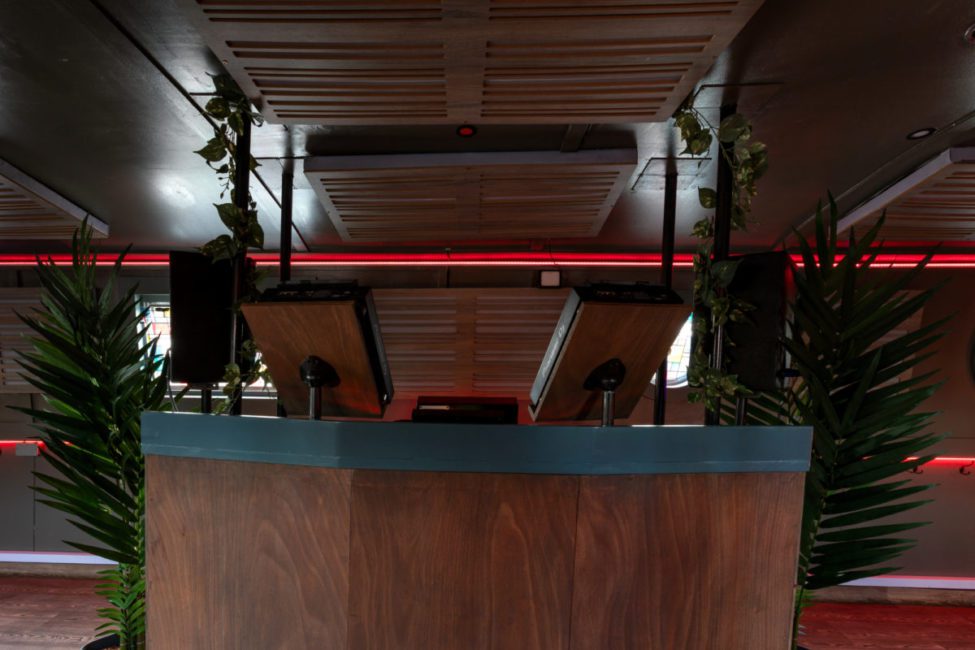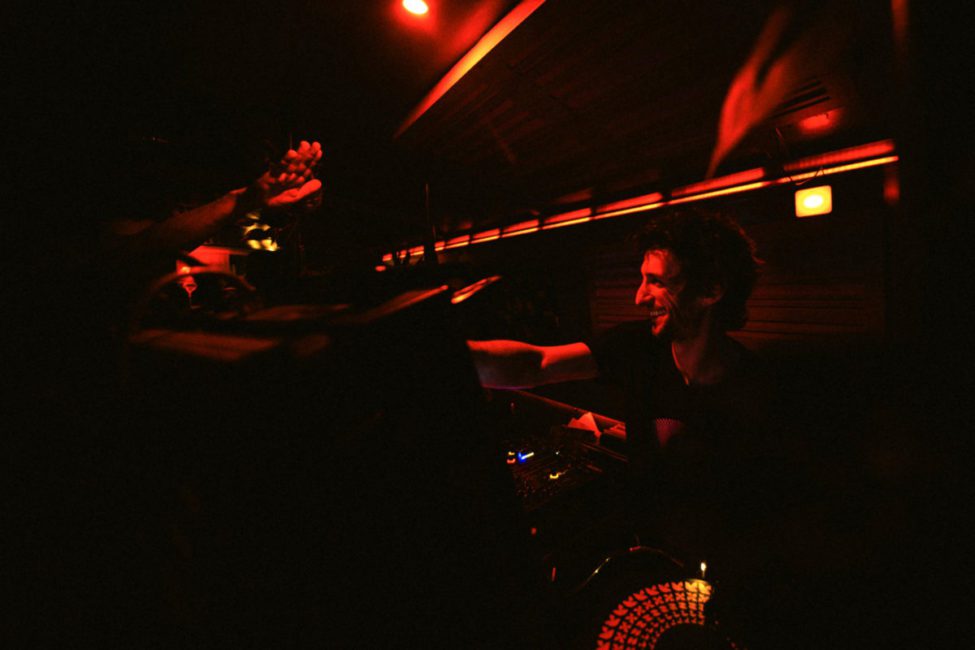An enduring relic of Britain’s industrial past, London’s extensive canal network is an iconic symbol of faded glory and prosperity. This overlooked setting has fostered a new era of repurposed spaces, drawing partygoers down forgotten towpaths and into elusive barge-based venues like The Goose.
Despite facing an uncertain future, independent clubs like this continue to underpin a resilient musical ecosystem, thriving within a world of corporate overlords and stringent legislation. By championing local and undiscovered talent, prioritising sound and protecting safe spaces, independent venues are, in many ways, undervalued but vital cultural repositories.
In this new series of Spaces features, we’re focusing on venue owners and delving into the complexities, struggles and triumphs of running a successful event space. We’re kicking off the series with a deep dive into the origins of a converted 65-foot canal boat turned 100-capacity club space The Goose, and the vision of its dedicated owner and founder Alejandro Abril.
Conceived amidst the turbulence of 2020, The Goose has sent ripples through an underground scene that values private and intimate party settings. Navigating East London’s canal network, by day The Goose silently bobs alongside coots, moorhens and discarded plastic bottles. By night, its wooden-clad interior transforms into a refuge and haven for those seeking authentic underground sounds and the company of like-minded souls, gazing out upon the world through stained glass portholes.
Following the success of his latest project, a sober-focused collective called Waveflow, we sat down with Alejandro Abril to discuss the logistics and ambitions of one of London’s better-kept secrets.
*SWIPE IMAGE ABOVE FOR PHOTO GALLERY*
Interview by Grace Stewart-Ricketts
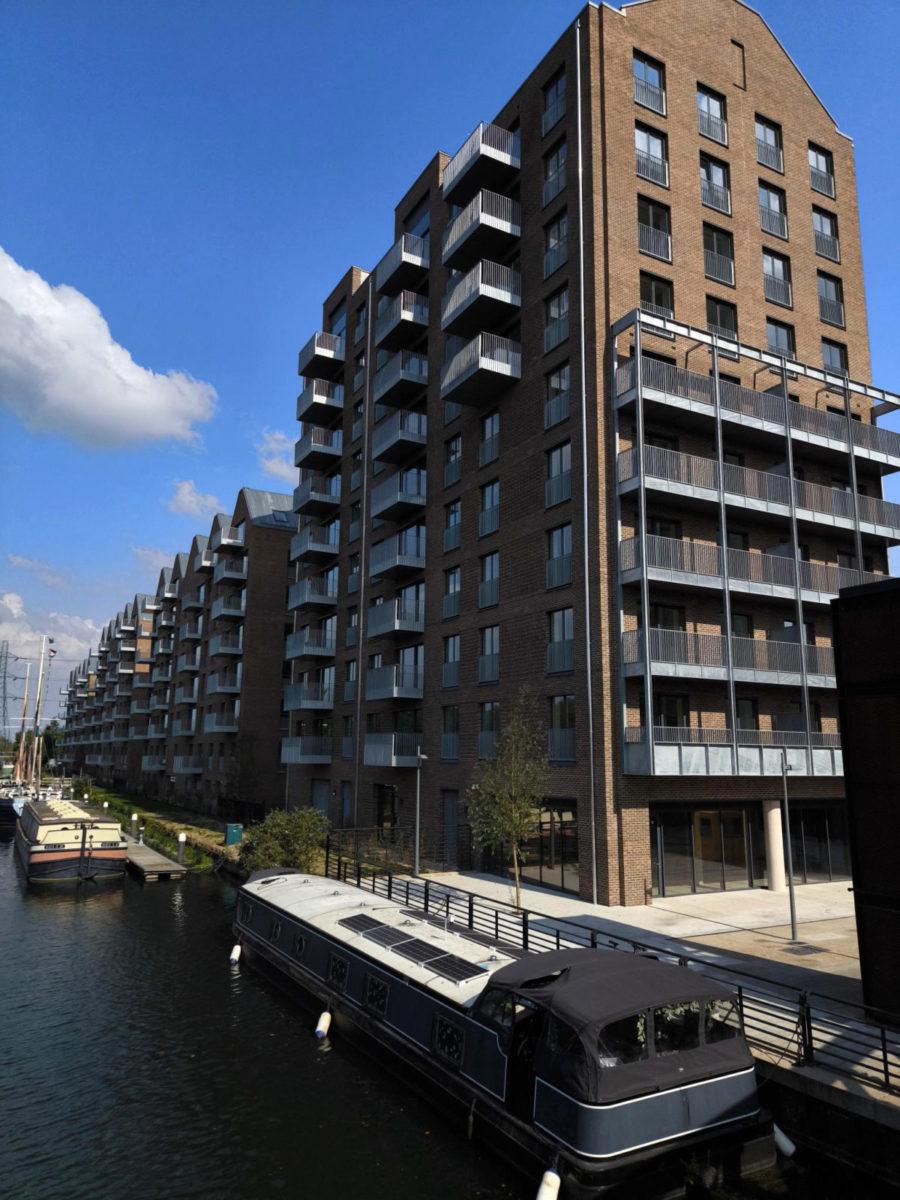
“The reason I chose to turn a boat into a venue is because I saw it as a blank canvas, a way to bring life to ideas I’d had since I first stepped into the industry. The rest of the spaces I went to see didn’t feel that way.”
Alejandro, thank you for taking the time to speak to us. Can you begin by telling us the origin story of The Goose and a bit more about the team responsible for running it?
The Goose dates back to 2020, during COVID. It was the thing that kept me busy whilst facing an uncertain future. The idea behind The Goose was to create an intimate, private venue for the events I was running back then, but the reality of post-COVID and Brexit changed everything and we had to re-adapt.
Over the last couple of years the team behind The Goose has been small but incredibly solid. There’s our head of security, Jay, who has been with us from the very beginning – he’s a vital part of the project. Mariana joined us two years ago and manages the venue during events, looking after the promoters and making sure everyone feels at home.
Kasia handles bookings and logistics leading up to the events. Then there’s Auris, our captain, who moves the boat around London. Kadri takes care of the guest checks, and I’m the glue that keeps the team together by dealing with whatever comes my way. Oliver and William are also part of the team, helping out whenever they’re needed in lots of different ways.
London is no stranger to repurposing unconventional spaces for its nighttime economy, from Metropolitan Cold Stores housing Fabric to the brutalist concrete warehouse now hosting The Cause. What inspired you to convert a barge into a floating event space?
Well, having a floating space is nothing new to London. I was raised in this industry, going to boat parties on the canals and in other unusual places. One of them felt like a second home to many of us. The reason I chose to turn a boat into a venue is because I saw it as a blank canvas, a way to bring life to ideas I’d had since I first stepped into the industry. The rest of the spaces I went to see didn’t feel that way.
Tell us a bit more about the history of the barge and your first encounter.
The Goose was an empty shell when I first went to see it, but I immediately saw its potential and could visualise what it was going to become. Built in 2019, it had been sitting in a marina in Teddington until I went to visit. It took us a year to build the venue followed by another year of waiting for the COVID restrictions to ease.
Inhabiting London’s canal network must come with its own set of unique hurdles. What unexpected logistical challenges have you faced since beginning the project?
First and foremost, learning how to sail such a big boat was a challenge. It came with its fair share of dramas, especially during the first couple of days when we brought it to London. Looking back, it was a fun time, but if I had to do it again, I’d probably hire someone to handle it.
Another major difficulty was adapting to the changes that London and the industry went through after Brexit and COVID. Things weren’t the same, young people had a two-year break from living and experiencing the industry we were part of.
Music tastes shifted quite radically, and social media took over in ways we hadn’t anticipated. It was quite a tough period to launch a new venue and sustain it financially through events, especially while maintaining the level of privacy I wanted for the space.
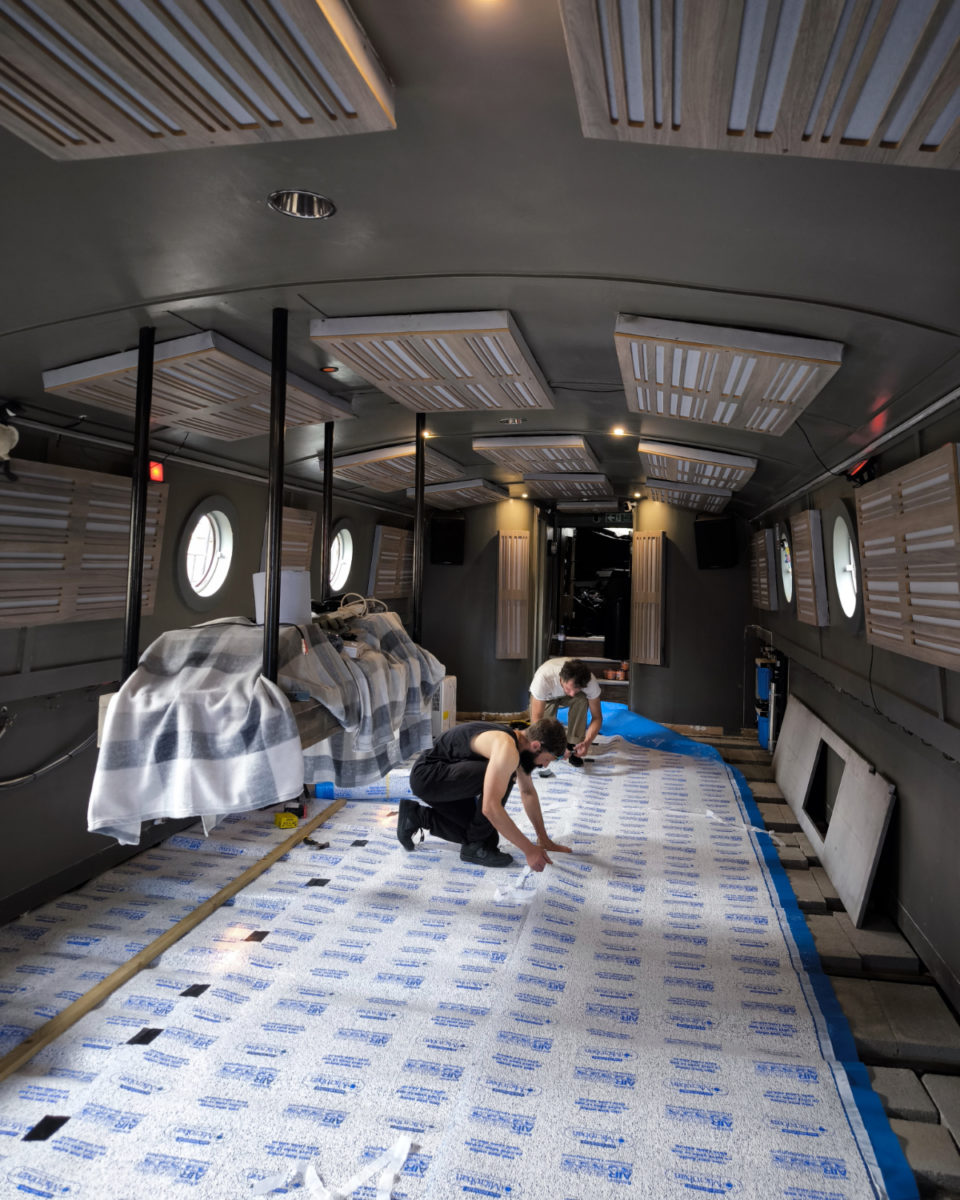
"People often ask why I’m constantly making changes. The truth is, I need to feel satisfied with every single detail of the venue. Every element matters when it comes to creating the best possible experience for everyone who steps in."
You recently revealed extensive refurbishment. What were some of the most important infrastructural changes you made and why?
The most significant improvement we’ve made is becoming fully self-sustained in terms of electricity. For a whole year, we’ve run entirely on solar panels and batteries, which is a huge step forward for us.
Another major upgrade was the installation of on-board toilets. It took us about a year to figure out the system, we had to completely reconfigure the venue. We created a designated tank room for waste and designed a system that works seamlessly.
For the artists, probably the best addition was hanging the DJ booth from the ceiling. When we moved the booth to the middle of the room, we ran into issues with the needles jumping due to the vibrations from dancing feet. After discussing the idea with our engineer, we planned and successfully welded the booth to the ceiling, eliminating the problem entirely.
We’ve also installed central heating, which was another challenging project that’s finally complete. The Goose is warm and welcoming for everyone now.
People often ask why I’m constantly making changes. The truth is, I need to feel satisfied with every single detail of the venue. Every element matters when it comes to creating the best possible experience for everyone who steps in.
With the launch of your latest project Waveflow, The Goose has become an advocate for sober spaces. Why is this such an important aspect of your mission?
I think this topic doesn’t get spoken about enough. There’s not much discussion around how unsustainable it is, physically and mentally, to drink, do drugs and stay awake every weekend. As a passionate partygoer and lover of electronic music, I would have loved to see more conversations about how this lifestyle can affect your personal life during my early years in the industry.
It’s not that I regret my choices back then, they shaped who I am today, but I feel many people miss out on the opportunity to truly experience the industry sober. It’s just as fun, but the mental clarity you gain from being sober can lead to a brighter future and help you achieve the goals you’ve set for yourself.
The idea with Waveflow is to give people the chance to experience sober events. The same type of events they’re used to, but in a substance-free environment. We want to help people build confidence in partying sober, so they can go out and not feel the pressure to drink or use drugs to have a good time.
The Goose is renowned for its fidelity to underground sounds and inclusive projects. What principles guide your event programming with promoters and artists?
The ethos of the venue is all about bringing people together. Word of mouth has been our main form of marketing, and that’s exactly how we want to keep it. We’re very selective with the promoters we bring on board because, at the end of the day, they’re the ones bringing their crowd.
It’s important to us that the promoters care, whether through a thoughtful introduction about their brand, their mission or the artists who will be performing. Kasia and I can usually get a sense straight away, and that’s how we decide who to work with and who not to.
What role does community play in keeping The Goose afloat?
Community is key for any business, especially when you’re bringing people together and giving them the chance to enjoy music, socialise and escape their daily routines. People truly value venues that care about them, and I believe that’s a big part of why The Goose has been so successful.
As we move into 2025, do you have any goals or hopes for the future you can share with us?
This year, I’ll be focusing on building a community with Waveflow. That’s our main goal. Besides that, we’re working on ways to support promoters hosting events at The Goose through ticket sales. I’m sure more things will come along with that.
What are your predictions for the future of the electronic music scene in London?
Living in London is becoming less and less affordable. With 40% of nightclubs closing down since COVID, I believe it will become more challenging to maintain the quality of a good night out under the current circumstances. All we can do is try our best to keep the vibrancy London once had alive.
